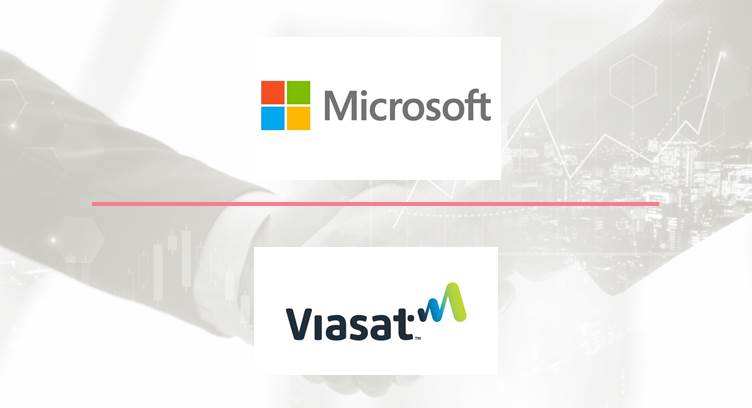Microsoft has announced a new collaboration with Viasat to help deliver internet access to 10 million people around the world, including 5 million Africans across the continent.
Microsoft announced this partnership on Wednesday via its official website.
The company intends to connect two types of wireless connectivity for these 10 million people, one to cover approximately the first 22,000 miles and another to bridge the last few miles.
Viasat, a global communications company, is the first satellite partner to collaborate with Microsoft’s Airband Initiative, and they would jointly deepen Airband’s work in Nigeria, the Democratic Republic of the Congo, Mexico, Guatemala, and the United States. The companies will also focus on extending the program to Egypt, Senegal, and Angola to provide the much-needed internet connection, largely for the first time.
Read also: Microsoft Set To Train 5 Million Nigerian Youths On ICT
Microsoft’s partners with Viasat
Microsoft’s collaboration with ViaSat comes after recent retreats by two other US tech giants that had earlier discussed connecting the unconnected worldwide with high-tech experiments.
This unprecedented global partnership for Airband is an important step in reaching the Initiative’s expanded goal of delivering internet access to a quarter of a billion people across the world, including 100 million people on the continent of Africa, by the end of 2025.
The new partnership with Viasat was announced by the company on Tuesday at the US-Africa Leaders Summit in Washington. This first edition of satellite service to its Airband connectivity initiative will bring internet access to 5 million people across Africa by 2025, with the other 5 million in Central and North America.
According to Microsoft’s Vice President of Technology and Corporate Responsibility, Teresa Hutson, “We believe access to the internet is a fundamental right and that digital skills create and enable economic prosperity for people, businesses, and governments.” Our Airband Initiative will extend high-speed internet access to 100 million people on the continent of Africa and to a quarter of a billion people living in unserved and underserved areas across the world by 2025.
The VP, citing a recent International Telecommunications Union estimate, highlighted that only 40% of Africa’s population is online, making the continent the least-connected region worldwide.
Teresa told them that while working with Viasat, Microsoft “will use satellite to reach remote areas that haven’t had many or any other ways to connect in the past.” “Together, we will be able to rapidly scale and expand Airband’s reach, exploring a wider pipeline of projects and new countries where we haven’t yet worked.”
In his remarks, Evan Dixon, Viasat’s President of Global Fixed Broadband, expressed his delight in working with Microsoft and explained the importance of providing internet access to future Africans.
According to Dixon, “We’re proud to partner with Microsoft as it represents another important step in bringing affordable internet service across Africa, Latin America, and the U.S., as both companies continue to break down barriers to bridge the digital divide and make significant progress toward digital equity and inclusion.”
He added that “providing internet access to the world is a challenging and bold goal, and doing so in a sustainable and responsible manner will unlock enduring opportunities for those who need it most.”
Microsoft Strengthens its Partnership with the African Development Bank
About Airband
In 2017, Microsoft introduced Airband and said that the project connected more than 51 million people worldwide, including 9 million in Africa. The tech giant aims to bring 250 million people online by 2025.
Through collaborations with local and regional internet and energy access providers, telecom equipment manufacturers, nonprofits, and governmental and nongovernmental organizations, Microsoft’s Airband Initiative advances global access to inexpensive internet and useful digital skills.
Microsoft believes that everyone has a fundamental to access the Internet and as such provides access to education, information and personal needs fulfilment.
















